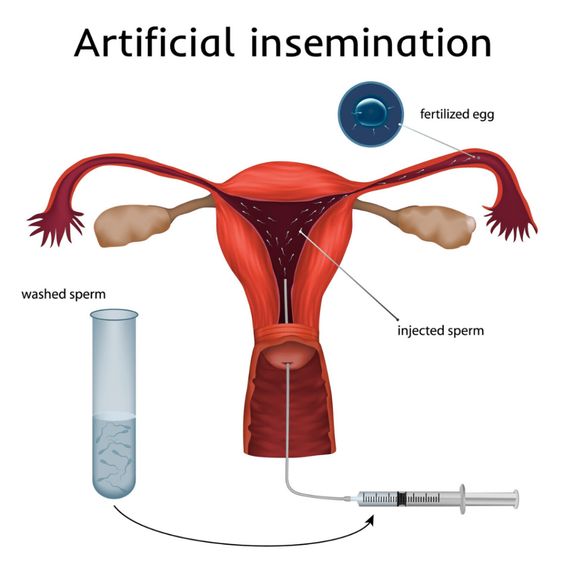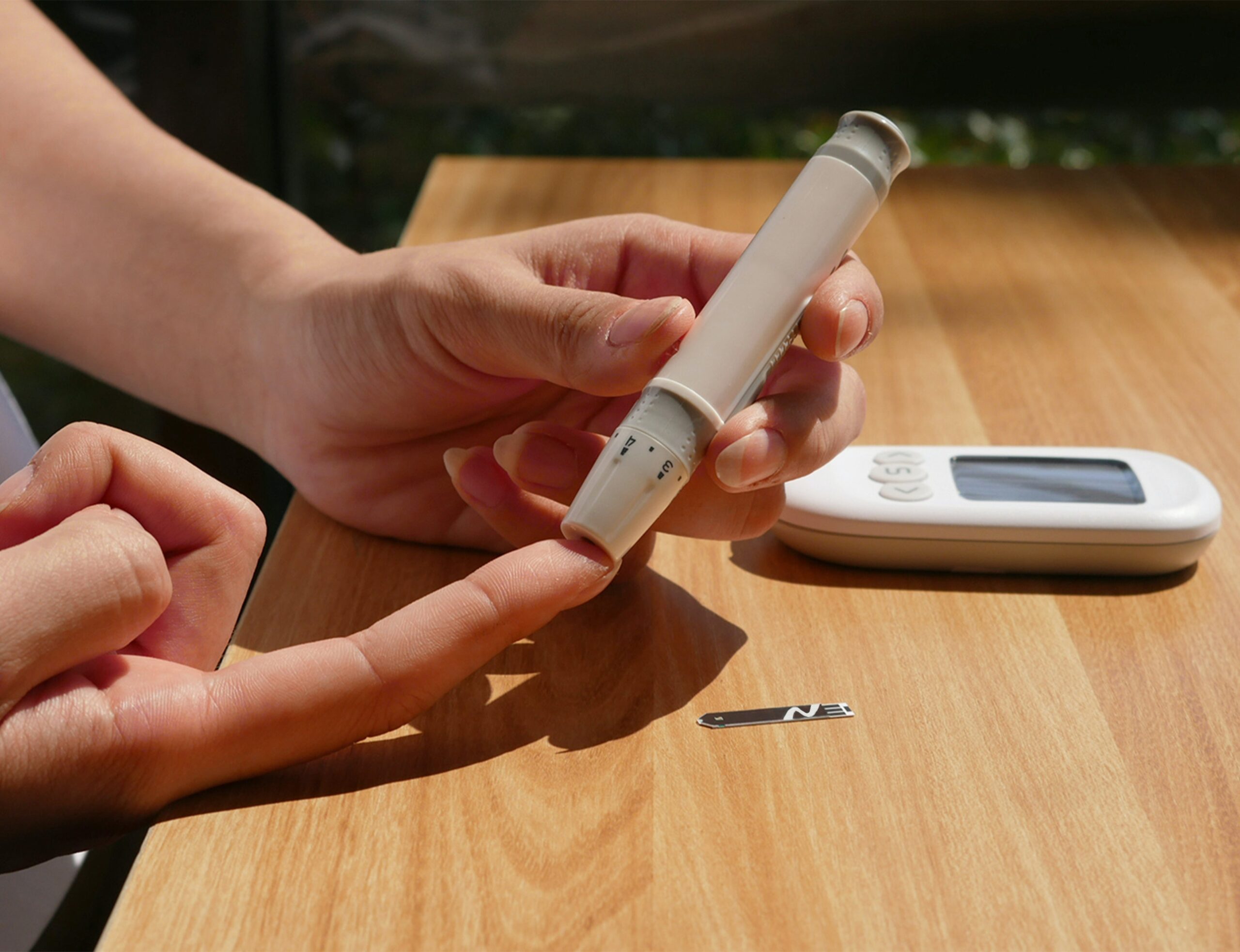






World-Class Technology
We are equipped with all the modern techniques and technologies for infertility treatments. Our top-class IVF lab has recently been upgraded as per the latest international recommendations.

Experienced Doctors & Staff
Dr. Lavleen Sodhi has been running the IVF centre since 2007 & it was the first in the region. With the best team of doctors & staff, we have successfully achieved results at par with the best institutes worldwide.

Patient-Friendly Environment
Dr. Sodhi's Healthcare Multispeciality Hospital and IVF Centre provides the perfect ambience and comfortable environment to all patients. Also, there is complete transparency in the treatment.
Empanelment
Our centre is empaneled with some of the best companies in the country.
- Icici Lombard
- Future Genera
- Med Save
- PARAMOUNT HEALTH CARE
- MEDI ASSIST INDIA
- UNIVERSAL SOMPO
- RELIANCE GENERAL INSURANCE
- BAJAJ ALLIANZ
- STAR HEALTH CARE
- MED HEALTH CLINIC
- MAX BUPA
- ADITYA BIRLA
- AKSHA TPA
- GHPL
- VIDAL HEALTH CARE
- TATA AIA
- FHPL
- KOTAK MAHINDRA
- VIDAL HEALTH CARE
- HDFC ERGO SAFEWAY
- BHARTI AXA
- VIPUL MED CORP
- PARK MEDICLAIM
- TTK
- GHPLTPA
- DHS
- MD INDIA
Why Choose Us
When it comes to your fertility care, you want the best. Dr. Sodhi's Healthcare Multispeciality Hospital and IVF Centre offers the best investigative procedures for infertility in men and women. We are equipped with world-class technology and state-of-the-art infrastructure which caters to infertility treatments like IUI, IVF, ICSI, Sperm donor, Egg Donor, Embryo Freezing, Blastocyst Culture and Transfer, Laparoscopy, Hysteroscopy, and more. In addition to your primary fertility physician, we have put together an integrated support team of experienced nurses, psychologists, and staff who work together to address your physical, emotional, and financial concerns. Choose Dr. Sodhi's Healthcare Multispeciality Hospital and IVF Centre to help build your family!

Dr. Sodhi’s Health Care Multispecialty Hospital & IVF Centre
Dr. Sodhi’s Health Care Multispecialty Hospital & IVF Centre has been running since 2007, employing the latest ‘State of the Art’ technologies for the treatment of infertile couples. The ultra-modern hospital is located in Mohali, a highly progressive township, adjoining Chandigarh.
Dr. LAVLEEN KAUR SODHI
DIRECTOR & Sr. CONSULTANT.
Obstetrician & Gynaecologist, Infertility specialist

Dr. Lavleen Kaur Sodhi is the Director, Sr. Consultant Obstetrician & Gynaecologist and Infertility specialist at Dr Sodhi’s Health Care Multispeciality Hospital & IVF Centre. She is also a visiting consultant at Fortis Hospital, Mohali & Cloud Nine Hospital, Chandigarh. Dr Lavleen Kaur has an illustrious academic record to back her present competencies. She completed her MD in 1995 from the prestigious P.G.I Chandigarh & her D.N.B.E from New Delhi, both in Obstetrics & Gynecology. During her M.B.B.S she also bagged the ‘Silver Medal’ in General Surgery in the final professional examination.
Happy Couples
Our Videos
Blog
 Understanding Endometriosis and Fertility: A Comprehensive Exploration December 19, 2023
Understanding Endometriosis and Fertility: A Comprehensive Exploration December 19, 2023Endometriosis is a complex medical condition that affects many women worldwide, bringing challenges not just to their physical health but also to their dreams of starting a family. In this exploration, we’ll dive into the connection between endometriosis and fertility, uncovering the hurdles, possible treatments, and holistic approaches for you on the fertility journey.
What is Endometriosis?
To grasp how endometriosis affects fertility, let’s first understand what it is. Endometriosis happens when tissue similar to the uterus lining grows outside the uterus. This abnormal growth can lead to the formation of lesions, adhesions, and scar tissue in various reproductive organs like the ovaries, fallopian tubes, and pelvic lining.
The Impact on Fertility
The link between endometriosis and fertility is intricate and varied. For many dealing with endometriosis, getting pregnant can be tricky due to a few reasons. The endometrial tissue outside the uterus can disrupt the normal functioning of reproductive organs, creating challenges for ovulation, fertilisation, and implantation.
Factors associated with endometriosis affecting fertility include:
Ovulatory Dysfunction: Endometriosis can disrupt regular ovulation, making it challenging for eggs to be released and fertilised.
Fallopian Tube Obstruction: Growth of endometrial tissue may block or damage the fallopian tubes, making it hard for eggs to travel from the ovaries to the uterus.
Inflammation and Immune Response: Inflammation linked to endometriosis can trigger an immune response, negatively impacting fertility and the implantation of a fertilised egg.
Impact on Egg Quality: Endometriosis has been associated with a potential decrease in egg quality, affecting the overall success of conception.
You can know the effects of endometriosis on fertility more in detail, by consulting the best maternity doctors in Mohali at our centre.
Facing Challenges in Getting Pregnant
When dealing with endometriosis, the road to having a baby comes with various and connected challenges. The unusual tissue growth can create adhesions, sticking reproductive organs together. This leads to structural issues affecting the normal functions of the ovaries, fallopian tubes, and uterus.
On top of that, the pain and discomfort from endometriosis can bring about problems in intimacy and add psychological stress, making the fertility journey more complex. Dealing with these factors emphasises the importance of a personalised and all-encompassing approach to fertility treatment for you with endometriosis.
Exploring Ways to Help
Assisted reproductive technologies (ART), like in vitro fertilisation (IVF), have proven successful in helping you with endometriosis become parents. IVF includes taking eggs, fertilising them outside the body, and then placing the embryos into the uterus.
Taking a Holistic Approach to Manage Endometriosis and Fertility
While medical help is essential, looking at the bigger picture and adopting a holistic approach can make a big difference in managing both endometriosis and fertility. Simple lifestyle changes like having a balanced diet with lots of nutrients, regular exercise, and finding ways to handle stress can have a positive impact on fertility.
Building a Strong Foundation for Well-being
Eating a balanced diet is crucial in dealing with the challenges of endometriosis. Foods rich in antioxidants, omega-3 fatty acids, and anti-inflammatory properties can help ease symptoms and improve overall well-being. Fruits and vegetables are great sources of antioxidants that fight inflammation, and omega-3 fatty acids found in fish and flaxseeds have anti-inflammatory benefits, helping with the discomfort of endometriosis.
Empowering both Body and Mind
Regular exercise is a powerful way of dealing with endometriosis. It not only keeps the body healthy but also helps manage stress, which is often linked with endometriosis challenges. Activities like brisk walking, cycling, or swimming at a moderate intensity can positively impact hormonal balance and reproductive health. Exercise also boosts blood circulation, contributing to a healthier reproductive system. Plus, the release of endorphins during exercise acts as a natural stress reliever, supporting emotional well-being.
Building Emotional Strength
Including mind-body practices in your daily routine is a smart way to manage stress and promote emotional well-being during the fertility journey. Techniques like meditation, yoga, and mindfulness offer tools to build resilience and maintain a positive mindset.
Taking Time for Inner Peace
Regular meditation provides a quiet space to calm the mind, reduce anxiety, and enhance emotional resilience. Techniques like mindfulness meditation, guided imagery, or focused breathing are especially helpful in managing the stress associated with endometriosis.
Connecting Mind, Body, and Spirit
Rooted in ancient traditions, yoga emphasises the connection between mind, body, and spirit. Through physical postures, breath control, and meditation, yoga provides a holistic approach to managing stress and promoting overall well-being. Certain yoga poses may even target areas affected by endometriosis, offering both physical and emotional relief.
Mindfulness Techniques
Practising mindfulness in daily life means staying present in the moment and cultivating awareness without judgment. Simple practices like mindful breathing or mindful eating can be woven into daily routines to reduce stress levels and enhance emotional balance.
These mind-body practices empower you to develop coping mechanisms, understand the emotional challenges of infertility, and approach the fertility journey with a positive mindset.
Acupuncture and Traditional Medicine
For some dealing with endometriosis, finding relief through acupuncture—a practice rooted in traditional Chinese medicine—has shown promise. Acupuncture involves thin needles inserted into specific points on the body to promote balance and harmony in the body’s energy flow, known as Qi.
Acupuncture sessions can be personalised to address specific symptoms and challenges linked with endometriosis. Supporters of acupuncture believe it can enhance fertility by improving blood flow to reproductive organs, regulating hormonal imbalances, and reducing inflammation.
Visit the Best Maternity Care Hospital in Chandigarh and Mohali
Your health is essential to us, and we’re here for you at Dr. Sodhi’s Health Care Multispecialty Hospital & IVF Centre every step of the way! Consult our professionals to get all the help you need in fulfilling your dream of parenthood. We offer around the clock in the outpatient department for regular check-ups and vaccinations for your baby, providing complete care for both moms and newborns. Not only are we a reliable maternity hospital, but we’re also the best IVF centre in Chandigarh. Our skilled fertility experts use safe techniques and equipment to help you on your journey. Book your consultation!
 World Antimicrobial Awareness Week: Your Guide to a Healthier Future November 22, 2023
World Antimicrobial Awareness Week: Your Guide to a Healthier Future November 22, 2023World Antimicrobial Awareness Week is more than just a phrase; it’s a global initiative that affects you and your ability to fight infections. Every November, this special week sheds light on antimicrobial resistance (AMR), teaching us how important our actions are in facing this global health challenge. It is a reminder for you to make smart choices that make the world safer and healthier. Let’s explore more why this week matters, what antimicrobial resistance is, and how we can all work together for a healthier future.
Why World Antimicrobial Awareness Week Matters to You
Antimicrobial resistance is like a silent enemy that’s getting stronger against the medicines we use to fight infections. This includes antibiotics, antivirals, antifungals, and more. World Antimicrobial Awareness Week is an annual reminder that what you do today affects how well these medicines work in the future.
In fact, it becomes more important to make expectant mothers aware of the judicious use of antibiotics, ensuring effective treatment while safeguarding the health of both themselves and their unborn child. That’s what we, the best gynaecologists in Mohali and Chandigarh, take the help of antibiotics only when needed to make pregnancies healthy and safe in all ways.
So, this awareness week is a call to action for you, healthcare professionals, policymakers, and communities to stand together against the growing threat of AMR.
The ABCs of Antimicrobial Resistance: What You Need to Know
A. Understanding Antimicrobial Resistance
AMR happens when tiny living things—bacteria, viruses, fungi, and parasites—change and become able to survive the drugs meant to kill them. This makes regular treatments not work well, leading to longer illnesses, higher healthcare costs, and, in severe cases, loss of life.
B. Factors Fueling Resistance
Overuse and Misuse: Using antimicrobial drugs in the wrong way is a big reason for AMR. Taking antibiotics without a prescription, not finishing the full course, or using leftover medications all make the problem worse.
Inadequate Hygiene: Not keeping things clean leads to more infections, which means more demand for antibiotics.
Use in Agriculture: Giving antibiotics to animals we use for food can leave traces in the food we eat, adding to the resistance problem.
The Role of World Antimicrobial Awareness Week in Your Life
A. Global Collaboration
This week brings the whole world together. Countries, organisations, and communities share knowledge and best practices to fight antimicrobial resistance.
B. Education and Awareness
World Antimicrobial Awareness Week is a time to learn and spread awareness. It teaches you about using antibiotics the right way, the consequences of resistance, and why keeping things clean helps prevent infections.
C. Policy Advocacy
Leaders use this week to talk about policies that support using antibiotics responsibly, controlling antibiotic use in farming, and investing in new medicines.
What Can You Do? Your Action Plan
A. Use Antibiotics Wisely
Prescription Power: Only take antibiotics if a qualified healthcare professional prescribes them to you.
Finish the Course: Even if you feel better, finish all the medicine. This makes sure all the harmful things are gone.
B. Practice Good Hygiene
Handwashing Habits: Wash your hands regularly to stop infections.
Sanitation Standards: Keep your surroundings clean to lower the risk of infections.
C. Spread the Word
Social Media Advocacy: Use your social media to tell others about using antibiotics wisely. Share helpful posts and stories.
Community Engagement: Chat with your friends, family, and neighbours about why it’s crucial to use antibiotics the right way. Share what you know so everyone can be aware and use medicine responsibly. Your conversations can help everyone in the community stay healthy.
Global Impact of Antimicrobial Resistance on You
A. Healthcare Ramifications
AMR affects more than just individual health. It makes hospital stays longer, healthcare is more expensive, and medical procedures riskier.
B. Economic Implications
AMR doesn’t just impact health; it affects economies too. Treating resistant infections costs a lot, and sick people can’t work as well, straining healthcare systems and national economies.
Looking Ahead: The Future Landscape for You
The future is a mix of challenges and hope. Researchers are working hard to find new medicines and treatments. But it’s also up to you to use the medicines we have now in the right way.
Empowering Your Future: Education and Research
A. School Programs: Learning from the Start
Making It a Part of Curriculum: Imagine learning about antimicrobial resistance from a young age. Schools can teach you about it in biology, health, or general science classes.
Creating Lifelong Habits: When you understand how important it is to use antibiotics right, it becomes a habit for life. You become someone who knows and shares this knowledge.
Interactive Learning: Learning about AMR can be fun. Schools can use examples and activities to make it interesting and easy to understand.
Involving Communities: Schools can bring parents and communities into the learning. Workshops and sessions can help everyone understand why using antibiotics wisely matters.
B. Research and Innovation: Building the Future Together
Crucial Need for Investment: Research needs support. Governments, organizations, and private companies must invest in finding new ways to stay ahead of harmful microbes.
Collaboration as the Catalyst: AMR is complex, so everyone must work together. Governments, researchers, and companies can join forces to share ideas and speed up discoveries.
Nurturing Emerging Talent: New ideas come from new minds. Supporting young scientists and researchers with scholarships and mentorship helps them explore solutions.
Holistic Approach to Innovation: Innovation is not just about new medicines. It’s also about better tools to identify infections and smarter strategies to treat them. We need a holistic approach for a strong response to AMR.
Seeking Help For Anti-Microbial Resistance During Pregnancy: The Best IVF Centre in Chandigarh and Mohali
Antimicrobial resistance during pregnancy raises concerns as infections become harder to treat. It emphasizes the need for cautious antibiotic use to safeguard both maternal health and the well-being of the developing fetus. We are one of the best pregnancy and IVF centres in Mohali and Chandigarh, helping countless mothers handle all such challenges for healthy motherhood. Book your appointment today!
 The Transformative Potential of Yoga for Tubal Health October 12, 2023
The Transformative Potential of Yoga for Tubal Health October 12, 2023A thorough study of reproductive wellness reveals the many factors crucial for successful conception. Among these factors, the often-neglected health of the fallopian tubes takes on a significant role as guiding passageways for fertilisation to occur. But did you know that the power of yoga can do wonders for the reproductive system? In this blog, we’ll explore the amazing effects of yoga on nurturing the health of these fallopian tubes and improving overall reproductive well-being. But first, let’s dive into more details about them.
Understanding the Crucial Role of Fallopian Tubes
Conception is a complex process, the fallopian tubes play a central role, guiding the egg from the ovaries to the uterus. Visualise this journey as a step-by-step process, where these delicate tubes gently transport the egg to its destination—the uterus. However, disruptions can occur in this otherwise smooth journey. Blockages, inflammation, or scarring in these fragile tubes can create challenges, affecting fertility. Think of it as facing hurdles on a once straightforward path. These challenges become crucial factors that significantly influence the likelihood of successful conception.

Yoga as a Holistic Lifestyle Practice
Yoga, originating from ancient India, transcends the boundaries of a mere physical exercise routine. It evolves into a holistic lifestyle practice, seamlessly integrating the realms of the mind, body, and spirit. Beyond the confines of the yoga mat, it becomes a way of life that encourages overall well-being, mindfulness, and balance. The inclusion of yoga into daily routines holds great potential to positively influence reproductive health, creating a conducive environment for fertility.
1. Hormonal Balance
Yoga practices, including specific asanas (postures) and pranayama (breathing exercises), can help regulate hormonal balance. This balance is crucial for regular menstrual cycles and optimal reproductive health.
2. Improved Blood Circulation to Reproductive Organs
The physical postures in yoga promote increased blood flow to the pelvic region, including the ovaries and uterus. This enhanced circulation can create a more conducive environment for conception.
3. Stress Reduction
Yoga is known for its stress-relieving effects. Chronic stress can impact reproductive health by disrupting hormonal balance. Yoga’s emphasis on relaxation and mindfulness helps reduce stress, fostering a positive environment for fertility.
4. Pelvic Floor Strengthening
Certain yoga poses target the pelvic floor muscles, promoting strength and flexibility. A strong pelvic floor is essential for reproductive health, supporting the uterus, bladder, and other pelvic organs.
5. Support for Menstrual Health
Yoga practices can contribute to regular menstrual cycles. Certain poses and breathing techniques help address issues like irregular periods and menstrual discomfort, creating a foundation for reproductive well-being.
6. Boosted Immune Function
A strong immune system is crucial for reproductive health. Yoga’s stress-reducing effects and promotion of overall wellness contribute to a robust immune system, creating a favourable environment for conception.
7. Enhanced Digestive Health
Certain yoga poses and practices promote digestive health, which is linked to reproductive well-being. A healthy digestive system ensures efficient nutrient absorption, benefiting overall body function.
8. Balanced Energy Flow (Prana)
In yogic philosophy, the concept of prana refers to vital life force energy. Yoga practices aim to balance and harmonise prana, promoting overall vitality and well-being, including reproductive vitality.
9. Improved Sleep Quality
Adequate and restful sleep is essential for reproductive health. Yoga’s relaxation techniques can contribute to improved sleep quality, supporting the body’s natural rhythms and hormonal balance.
10. Enhanced Emotional Well-being
The mind-body connection in yoga emphasises emotional well-being. Managing emotions and reducing anxiety through yoga may positively impact fertility by creating a supportive mental state.
Tip: Mindfulness techniques, combined with visualisation practices, can help women develop a positive mindset toward fertility. This mental preparation can contribute to a more relaxed and receptive state for conception. In addition to this, you can go for regular consultations at a good maternity care hospital. You can book a consultation with the best gynaecologists in Mohali and Chandigarh at our IVF centre.
Exploring Yoga Poses for Enhanced Tubal Health
Specific poses in yoga are dedicated to enhancing tubal health. These poses delicately blend gentle stretches and movements, stimulating blood circulation, alleviating inflammation, and fostering an environment conducive to a healthy reproductive system. Key poses include:
Supta Baddha Konasana (Reclining Bound Angle Pose):
- Enhances blood flow to the pelvic area.
- Induces relaxation in the abdomen, alleviating tension.
Setu Bandhasana (Bridge Pose):
- Strengthens pelvic muscles, fortifying the reproductive framework.
- Promotes flexibility in the spine, a crucial element for reproductive vitality.
Bharadvajasana (Seated Twist):
- Augments spinal flexibility, promoting overall reproductive health.
- Stimulates abdominal organs, including the ovaries, contributing to tubal health.
Addressing Stress Reduction and Hormonal Harmony Through Yoga
Stress and hormonal imbalances are intricately interwoven in the tapestry of reproductive health, impacting the intricate functionality of fallopian tubes. Yoga provides a sanctuary for stress reduction, employing mindfulness and relaxation techniques. As stress levels diminish, a restoration of hormonal harmony unfolds, creating an environment conducive to optimal tubal function and fertility.
Unveiling Scientific Perspectives on Yoga and Reproductive Health
The marriage of ancient wisdom and modern science is evident in scientific studies exploring the correlation between yoga and reproductive health. Robust research suggests that yoga significantly contributes to stress reduction, improves blood flow to reproductive organs, and regulates hormonal balance—elements intricately linked to optimal tubal health. This scientific underpinning enriches the profound ancient wisdom of yoga with empirical evidence.
Harmonizing Yoga into a Complete Fertility Plan
Yoga seamlessly extends into the broader canvas of reproductive wellness, harmonising with medical interventions and lifestyle adjustments. This approach, fusing the ancient principles of yoga with contemporary fertility treatments and a health-conscious lifestyle, empowers individuals on their journey toward optimal reproductive health. The comprehensive strategy unfolds as a transformative guide, exploring the complicated path toward parenthood.
Complete Maternity and Gynae Care – The Best IVF Centre in Mohali and Chandigarh
Your well-being is our priority, and at our centre, we’re committed to supporting you on your journey to health. Through a combination of yoga practices and counselling sessions, we aim to provide comprehensive care for your mind and body. Apart from being a trusted maternity hospital, we’re recognised as the top IVF centre in Chandigarh. Our skilled fertility specialists use safe techniques and modern equipment. With a solid reputation in the fertility and maternity care community, we have the highest success rates in the Tricity area. With over 25+ years of experience, we’ve helped many couples overcome fertility challenges. Book your appointment now!
 Is It Safe Eating Bitter Gourd (Karela) During Pregnancy September 7, 2023
Is It Safe Eating Bitter Gourd (Karela) During Pregnancy September 7, 2023When a woman is pregnant, her body goes through many changes, and she needs to make special changes to her diet and lifestyle to help her baby grow properly.
If you’re pregnant, you might have already started eating healthier foods like whole grains, green vegetables, and fruits to ensure both you and your baby get the right pregnancy diet nutrients.
While most veggies are good for your baby, some, like bitter gourd (karela), may not be the best choice during pregnancy. Let’s find out if it’s safe to eat bitter gourd (karela) during pregnancy.
Is it Okay to Eat Bitter Gourd When You’re Pregnant?
Bitter gourds have lots of good nutrients for pregnant women and their babies, but some people aren’t sure if it’s safe. So, it’s your choice: you can eat them if you want, or you can skip them.
Some studies have looked at how eating bitter gourd during pregnancy can affect moms and their babies. The results are a bit mixed. Some parts of the bitter gourd, like the fruit and leaves, seem to be safe when turned into extracts. They even have vitamin C that helps moms fight off bad germs and stay healthy during pregnancy.
But it’s not all good news. Some parts of bitter gourd, like the seeds and roots, can make the mommy’s stomach move a little too much, like a gentle shake. That’s not good for the baby.
Now, there’s no clear proof that eating bitter gourd is like a superhero power for pregnant moms. It doesn’t seem to directly fix problems during pregnancy or help with staying the right weight.
So, if you’re pregnant and you want to eat some bitter gourd, it’s probably okay every once in a while, and not too much at once. But it’s really important to talk to a doctor first to make sure it’s safe for you and your baby. Always be careful and ask for help from Pregnancy & Maternity Clinic in Mohali or other areas when you’re not sure!
Benefits of Eating Bitter Gourd (Karela) During Pregnancy

The benefits of eating bitter gourd during pregnancy are as follows:
- Super Folate Booster: Best fertility specialist in Chandigarh said that bitter gourd has a lot of folates, which is like a superhero for babies. It helps the babies’ bodies develop properly and stay away from any problems.
- Feeling Full and Healthy: Bitter gourd is like a magic vegetable that makes pregnant women feel full and happy. It stops them from wanting to eat too much junk food so they can stay healthy even when they’re having a baby.
- Stomach Problems No More: Sometimes, pregnant women have stomach problems like being stuck on the toilet for a long time. Bitter gourd helps with these problems and makes them feel better.
- Sugar Control Helper: Bitter gourd is helpful for those pregnant ladies who have too much sugar in their blood. It has special things that can bring the sugar back to normal and keep both mother and baby safe.
Possible Side Effects of Eating Bitter Gourd During Pregnancy
Eating bitter gourd while pregnant can be harmful to the baby. Here are some reasons why:
- Anaemia: Some pregnant women might get sick from bitter gourd because it has something called vicine that can destroy their red blood cells. This could make them very weak and hurt their pregnancy. So, it’s better not to eat bitter gourd during pregnancy. But if you really want to, talk to your best fertility specialist in Chandigarh first and eat just a little bit.
- Toxicity: Bitter gourds have things like Momordica, quinine, and glycosides that can be like poison to your body. They can make your stomach hurt, mess up your eyesight, make you throw up, feel really tired, have sore muscles, feel sick, and even make your mouth make too much spit.
- Stomach Problems: Eating bitter gourd can give you a stomach ache, make it hard to digest food, give you diarrhea, make your belly hurt, and more. Even the seeds of bitter gourd can cause these problems.
- Bleeding: Some experts from trusted pregnancy care in Mohali, Chandigarh say that having bitter gourd juice when you’re pregnant might make your belly squeeze too much and even make you bleed, which could lead to baby death.
FAQ
Is it safe to eat cooked bitter gourd during pregnancy’s first trimester?
Ans: Consuming cooked bitter gourd (karela) while first trimester of pregnancy, particularly in the early stages, requires careful consideration. Bitter gourd has specific nutrients that may impact pregnancy, so it’s crucial to be aware of possible concerns.
Is it safe to eat bitter gourd during pregnancy in the second trimester?
Ans: Eating bitter gourd during the second trimester of pregnancy requires some careful thinking. It’s really important to talk to your doctors at the best maternity hospital in Chandigarh before you start eating bitter gourd. They can give you advice according to your health and pregnancy. If you decide to have a bitter gourd, just don’t eat too much, and pay attention to how your body feels.
Does bitter gourd contain folic acid?
Ans: Bitter gourd, also known as bitter melon or Momordica Charania, does have a bit of folic acid. Folic acid, also called folate or vitamin B9, is super important for pregnant ladies because it helps keep the baby’s brain and spinal cord healthy and prevents problems with the neural tube.
Does bitter gourd cause miscarriage?
Ans: It is essential to remember that you should eat bitter gourd in small amounts when you’re pregnant. Eating too much can cause digestive problems and might even cause miscarriage. It is a good idea to talk to a doctor of pregnancy hospitals in Mohali before you start eating bitter gourd while pregnant.
Conclusion
In summary, bitter gourd (karela) can provide certain benefits, such as folate for fetal development and potential sugar control, but it also carries risks, including anemia and digestive issues. Pregnant women should consult with healthcare providers like the best maternity hospital in Mohali for personalized guidance, exercise moderation, and prioritizing their well-being and their baby’s health when considering bitter gourd in their diet.
 Can You Eat Brinjal During Pregnancy? August 26, 2023
Can You Eat Brinjal During Pregnancy? August 26, 2023Since ages, debates on eating fruits like papaya during pregnancy have been doing the rounds. Now, questions on the potential health benefits and risks related to vegetables such as brinjal (eggplant or aubergine) are being raised by both experts and laymen. Without a doubt, these medical concerns are certainly important to ensure a safe maternity experience.
Being one the best pregnancy hospitals in Mohali, we decided to break down everything around eggplant and pregnancy into titbits.
Is It Safe To Eat Brinjal During Pregnancy?
Till now, there’s not been a simple ‘yes’ or ‘no’ answer to this question. This is because brinjal can provide rich nutrition as well as be a big threat to the well-being of an expectant woman and the fetus. The effects it can have vary from one person to another. In other words, your healthcare provider would need to consider all your past and present medical records along with your dietary requirements, to give you the right advice.
Nutrition For Pregnant Women – Brinjal Benefits Vs Risks
While it’s not easy to say exactly how eggplant affects pregnancy, here are some things to keep in mind, when including it in your diet.
Note: The following recommendations regarding brinjal are general information recognized by almost every pregnancy and gynecology clinic. However, we do not advise you to consider these as replacements for personal medical consultation and treatment.
Health Advantages:
Rich Fiber – Brinjal can be a valuable dietary resource, effectively helping with common pregnancy problems such as constipation. Moreover, it has vitamin K to avoid problems of blood clotting and vitamin C, for boosting the immune system.
Balances High BP – You are more likely to have high blood pressure during pregnancy because of the hormonal changes in your body. Eggplant contains potassium, thiamin, bioflavonoids, and riboflavin, which can help control high blood pressure, ensuring an optimal heart rate.
Boosts The Number of RBCs –
Red blood cells (RBCs) help grow a fetus’s nerves, brain, and muscles. They also make sure both you and your baby have enough iron. Eggplant contains folate, which turns into folic acid, increasing the RBC count.
Keeps Cholesterol In Check –
Eggplants are believed to reduce the “bad” cholesterol, known as low-density lipoprotein (LDL), and increase the “good” cholesterol, called high-density lipoprotein (HDL). This cholesterol control not only helps with your baby’s heart health but also improves your cardiovascular well-being.
If you live in Mohali or nearby, you can easily find the best fertility specialist in Chandigarh to better understand the benefits of eggplant in your case.
Side Effects:
Allergies – Some people can be allergic to brinjal and experience skin rashes, itching, swelling, or digestive issues like stomach pain. Allergies, if not managed properly, can cause risks during pregnancy. If you know you have allergies or if you feel unwell after eating eggplant, seek advice from your doctor.
Indigestion – While expecting a baby, you may go through heartburn or acid reflux. If you already have a weak digestive system, eating eggplant can make you feel more uncomfortable. In this case, you must completely avoid including it in your diet.
Premature Birth – When you’re pregnant and come into contact with toxoplasmosis (the soil in which brinjal grows), it can raise the chances of your baby being born too early. This can cause several problems because your baby’s organs and body systems might not be fully developed yet to survive outside the womb. Always wash eggplants thoroughly and handle them with complete hygiene.
Gestational Diabetes Mellitus – If you have GDM or are at risk, watch how many carbs you eat, including those in eggplant. The glycemic index in it can lead to high levels of sugar in the blood. If you’re struggling with diabetic problems in pregnancy, consult only the certified and the best maternity hospital in Chandigarh and around to receive appropriate treatment.
The Right Way to Have Brinjal During Pregnancy

Now that we know both the upsides and downsides of eggplant let’s dive into the possibilities of making it a part of your diet in a safe and fun way.
Mind These Precautions:
1. Eat in a moderate amount and not so frequently.
2. Buy ones that are small, smooth, and firm with no marks or holes.
3. Wash eggplants under running water and peel off the skins.
4. Soak them in warm salt water before cooking. This can help get rid of any bacteria and pesticides.
5. Cook or roast eggplants properly; don’t eat them raw or overcooked.
Make It Tasty
1. Prepare A Delicious Aloo Sabzi/Bharta – You can make a yummy Aloo Sabzi (potato curry) or Bharta (mashed eggplant) during your pregnancy. These dishes provide you with energy (from potatoes) and vital vitamins (from eggplants).
2. Add It Into Your Sandwich Filling – When you make sandwiches, try adding slices of grilled eggplant. It’s a great way to eat more veggies and make your sandwich more delicious.
3. Top It Over Your Favorite Pasta – You can put grilled or roasted eggplant on your pasta. It adds a different flavor and goes well with tomato or creamy sauces. Plus, it gives you fiber and vitamins.
4. Make A Delightful Mix Veg Soup – Prepare a soup with different veggies, including eggplant. Mixing them will completely level up your overall health.
5. Enjoy It The Barbeque Style – Grilled eggplant gives you vitamins, antioxidants, and fiber. Try grilling eggplant on a barbecue. It’s not only tasty but also healthy. You can use your favorite spices for extra flavor.
The Takeaway
Brinjal is a good source of essential nutrients like fiber, vitamins, and minerals. However, there are also a few health concerns to it. The points mentioned above can help you easily compare its good and bad effects. To sum up, brinjal can be a nutritious addition to your pregnancy diet when consumed sensibly, offering both flavor and essential nutrients. But as mentioned before, you must seek advice from doctors and experts at any best maternity hospital in Mohali (or surrounding cities) to always be sure and safe.
 Gestational Diabetes: Developing Diabetes During Pregnancy August 11, 2023
Gestational Diabetes: Developing Diabetes During Pregnancy August 11, 2023Carrying your bundle of joy in your womb is a wonderful and life-changing experience, filled with many physical and hormonal shifts. Yet, it’s a crucial time with its own set of challenges that can affect your health and your baby’s. Gestational Diabetes Mellitus (GDM) is one such issue that pregnant women may unexpectedly experience.
What is Gestational Diabetes?
It is a type of diabetes that can happen when a woman is pregnant. It occurs because the body can’t make enough insulin, which is needed to control sugar levels in the blood during pregnancy. This can be risky for both the mom and the baby.
You can get one-on-one information on this by consulting the medical experts at Dr. Sodhi’s Health Care Multispecialty Hospital & IVF Centre, the best fertility and maternity hospital in Mohali.
What are the Effects of Gestational Diabetes on The Mother And The Baby?
When gestational diabetes isn’t taken care of properly, it can cause serious complications and issues.
For the Mom:
1. She might develop type 2 diabetes later in life.
2. She could require a cesarean section for delivery.
3. There’s a higher risk of high blood pressure during pregnancy.
For the Baby:
1. The baby might be born larger than usual, which can lead to birth injuries.
2. After birth, the baby might experience low blood sugar (hypoglycemia).
3. The baby could have a greater chance of becoming overweight or developing type 2 diabetes as they grow up.
You must get the right medical advice and support during your pregnancy to ensure your and your baby’s safety along with a smooth and healthy delivery.
The Possible Causes of GDM
The exact cause of gestational diabetes is still unknown yet a few factors can be responsible, like:
- Age: If you’re older than 25, you have a higher chance of getting gestational diabetes during pregnancy. This is because your body changes as you get older, affecting how it handles blood sugar. So, if you’re in this age group, it’s important to pay close attention to your doctor’s advice on keeping your blood sugar levels in check for your and your baby’s well-being.
- Hormones: When you’re pregnant, your body changes and the placenta (connected by the umbilical cord) starts making hormones. These hormones can affect your insulin levels and can cause something called ‘insulin resistance,’ where your body doesn’t use insulin as well as it should. This might make it harder to keep your blood sugar balanced.
- Genetics: If diabetes runs in your family, it means there’s a higher chance you could get gestational diabetes when you’re pregnant. This is because some things related to diabetes can be passed down in your family’s genes. So, when you’re expecting a baby, it’s important to tell your doctor if anyone in your family has had diabetes. Your healthcare provider can then watch your blood sugar more closely and help you take care of yourself and your baby.
- Previous Pregnancy with GDM: If you had gestational diabetes when you were pregnant before, there’s a higher chance it might reappear if you get pregnant again. It’s like a pattern. So, if this has happened to you before, your doctor will be extra careful during your next pregnancy.
- Polycystic Ovary Syndrome (PCOS): PCOS and gestational diabetes are connected because both involve a problem with insulin. In PCOS, your body often doesn’t use insulin properly, so your blood sugar levels can go up. During pregnancy, all women become a bit more resistant to insulin to make sure the baby gets enough nutrients. But if you already have PCOS, this insulin resistance can be even worse.
- Obesity: If you’re overweight before getting pregnant it can make it more likely for you to have gestational diabetes while you’re pregnant. This is because having too much body weight can affect how your body handles sugar. So, if this is the case for you, you must tell your physician.
Major Symptoms of GDM
Gestational Diabetes may not always give clear symptoms of its presence. A few noticeable signs in your body can help you identify the development of this condition:
- Feeling more thirsty and needing to pee a lot more than usual.
- Feeling tired, more than the usual pregnancy fatigue.
- Getting infections more often than you used to.
- Having trouble seeing clearly, like things getting blurry
Do you suspect you have gestational diabetes? We at Dr. Sodhi’s Health Care Multispecialty Hospital & IVF Centre, the best maternity center in Chandigarh, can help you manage it to keep both you and your baby healthy.
Diagnosis of Gestational Diabetes
Doctors usually check for this diabetes between the 24th and 28th weeks of pregnancy using a test where you don’t eat overnight, and then drink a sweet drink. They then check the blood sugar levels at certain intervals.
But this may not be the same for all patients and other tests during other phases of your pregnancy can be recommended.
Glucose Challenge Test: You’ll be asked to have a sweet drink. After one hour, your blood sugar is tested. If it’s 190 mg/dL or higher, it means you have gestational diabetes.
Usually, a blood sugar level below 140 mg/dL is considered okay in this test. But if it’s higher, you’ll need the longer test (the glucose challenge one) to be sure if you have gestational diabetes.
Follow-up Glucose Tolerance Test: This test is like the first one, but the sugary drink is even sweeter, and they check your blood sugar every hour for three hours. If at least two of those checks show your blood sugar is too high, you have gestational diabetes.
Visit the best pregnancy care hospital in Mohali to find the diagnostic test right for your condition.
Effectively Managing Gestational Diabetes
When you’re diagnosed with gestational diabetes, it’s important to do certain things to have a healthy pregnancy and delivery:
1. Keep a Proper Diet: A dietitian can make a special eating plan for you. It’s about watching how many carbs you eat and having balanced meals.
2. Exercise Daily: Doing regular exercises can help your body use insulin better. Ask your doctor what exercises are safe when you’re pregnant.
3. Take the Right Medication: Sometimes, your doctor might give you insulin or pills to help control your blood sugar if diet and exercise alone aren’t enough.
4. Regular Check: You need to keep track of your blood sugar levels often. You can do this with a little finger stick test or by using a device that keeps an eye on your sugar levels all the time.
Besides these measures, keeping a close eye on your baby is an important part of your care plan. Your doctor may use ultrasounds and tests to monitor your baby’s overall health. If you haven’t gone into labor by your due date, or sometimes even earlier, your healthcare provider may help start labor. Going beyond your due date can increase the risks for both you and your baby.
After giving birth, your physician will check your blood sugar level. They will do this again in 2-3 months to ensure it’s back to a normal range. If your levels are normal, you’ll need to have your diabetes checked every two to three years.
Finding the Best Maternity and Fertility Hospital in Chandigarh
The doctors at Dr. Sodhi’s Health Care Multispecialty Hospital & IVF Centre hold a valuable experience of 15 years+ in treating every complication related to pregnancy. Our dedicated practice can help you easily get through the difficulties of gestational diabetes.
At our maternity clinic, we have a team of experienced pediatricians. They are here for regular baby check-ups and vaccinations in the clinic. In case of emergencies, they are available 24/7. When a baby is born, there is a dedicated pediatrician present to provide comprehensive care for both the mother and the baby.
Our medical services also extend to:
- In vitro fertilization (IVF) & IUI (Intrauterine Insemination)
- Egg & Sperm Donation
- 24-HOUR Pediatric Emergency
- Level II NICU
- Preimplantation Genetic Testing (PGT)
- Blastocyst Transfer
- Embryo Hatching
- Surrogacy & more.
Book an appointment with us today to always experience happy and healthy parenthood.
Google Reviews
Thank you Dr. Sodhi Hospital, Staff and Management for providing the best treatment and care. 🤗
The whole staff's dedication to the patients is inspiring.
Each and every person working in Sodhi's healthcare centre is very much caring.THOSE WHO ARE LOOKING FOR A BEST GYNECOLOGIST, PLEASE VISIT SODHI 'S HEALTH CARE.
Staff was also all time available in need.
The hospital has all the facilities and requirements, hygiene is also well taken care of.
Utmost reasonable cost. An affectionate healing touch and bond-like behaviour from Dr. Harpreet, Dr. Sodhi and Dr. Arsh preet Dhiman as well. God bless this clinic to spread many more smiles on others faces.
They explained everything very well, gave the proper medications and care and ensured a Normal Delivery for my First Child
We are very thrilled with them and have recommended them to our family and friends who ask
Dr Loveleen and Dr Harpreet are extremely knowledgeable
Warm regards,
Bhawana
Lastly they even charge for first post surgery consultation which they told was included in package they had given to me but denied afterwards.
Her team, including Dr. Harpreet Kaur and Dr. Palwinder kaur, were also incredibly caring and supportive. Throughout my journey from conception to delivery, they guided me with compassion and professionalism.
The nursing staff at the hospital were equally impressive, providing cooperative and caring service and had good experience with housekeeping services especially room cleanliness.
Thank you to the entire team for making my delivery experience so smooth and stress-free. I always recommended to visit this hospital for getting good services.
Following my C-section delivery, I was unable to breastfeed my baby and needed assistance. The night nurses left my baby hungry for over 5 hours and ignored our calls for help, only to later comment that he was crying excessively because he was supposedly full. This level of negligence is unacceptable.
The hospital mandates that nurses help babies latch for breastfeeding, which is a positive initiative. However, the execution was terrible. The nurses were forceful, and one even hit my baby near the ear. When I objected, she claimed that babies don’t feel pain, ignoring the fact that my baby was crying in distress. Due to this traumatic experience, my baby never managed to latch properly and I had to resort to formula feeding.
The pediatrician only checked on the baby once, despite being expected to visit daily and provide discharge instructions. He also failed to advise us to start the mandatory vitamin D medication for the baby. Due to this negligence, my baby experienced jaundice after a few days and was admitted to another hospital for another 3 days.
More than 1.5 years later, I still feel the pain and trauma from this experience. Additionally, the staff’s habit of calling patients "Rajje" was disrespectful, especially since many patients were older and deserved respect.
I cannot recommend this hospital for delivery procedures due to the unprofessional and insensitive behavior of the nursing staff.
Dr. Lavleen kaur gave me all the best treatment and advices on each step of pregnancy. She highly skilled in her field and very kind and helpful.
Dr. Harpreet also provided us with full care and support both emotinally and morally.
They both made this journey of pregnancy a worry free process and provided me with full mental comfort.
The facility they run is great and staff is awesomely caring and supportive.
I am very pleased to deal with them and wish that like me whoever comes to them gets their wish to become patents fulfilled.
God bless them and im highly thankful to Dr. Lavleen, Dr harpreet and their team.😊
Thank you
Regards
Dr.Pratibha










































































